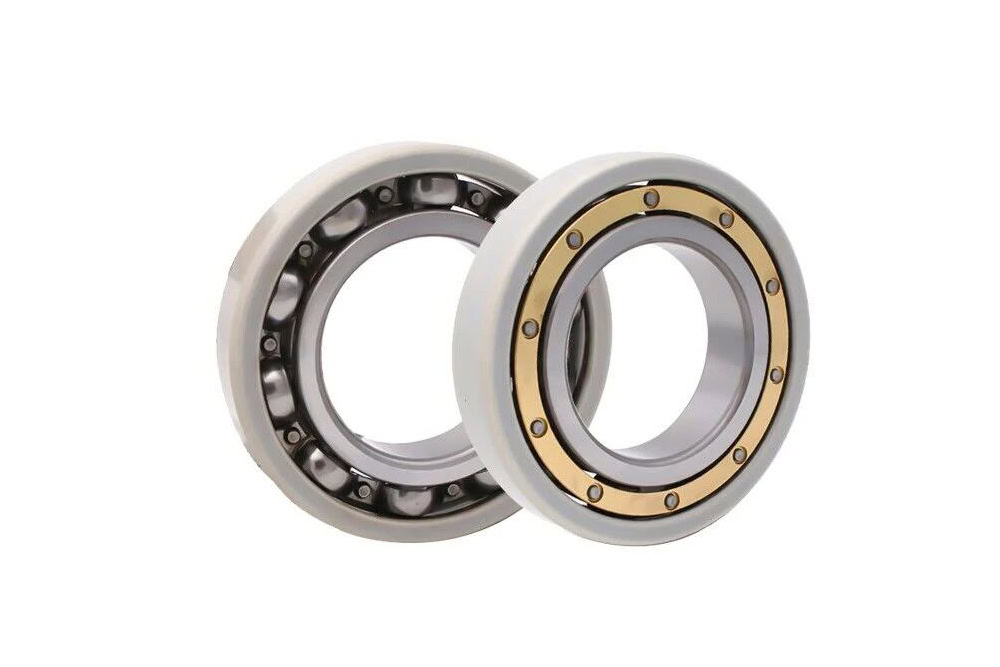
Bearing Manufacturer & Supplier
Specialize in ball bearings, roller bearings, thrust bearings, thin section bearings etc.
Advantages and Disadvantages of Electrically Insulated Bearings
Electrically insulated bearings are bearings with excellent electrical insulation properties. By adding specific insulating agents to the bearing material or using a special coating process, the bearing has the ability of electrical insulation on the basis of mechanical properties. This ability enables the bearing to effectively prevent current from passing through the bearing itself when it is running in a conductive medium, thereby protecting the equipment from electrical faults.
Electrically insulated bearings are widely used in various occasions that require electrical isolation, especially in the fields of motors, generators, power tools, medical equipment, etc., where their role is particularly prominent. In these devices, electrically insulated bearings not only ensure the efficient operation of the equipment, but also greatly reduce the risk of electrical faults and improve the safety and reliability of the equipment.

Table of Contents
ToggleAdvantages of electrically insulated bearings
Improve equipment reliability: electrically insulated bearings can isolate current and avoid the impact of current on bearings, thereby protecting the safe operation of equipment and improving the reliability of equipment.
Extend equipment service life: electrically insulated bearings use special materials and manufacturing processes, have better high temperature resistance, corrosion resistance and other properties, can operate normally in harsh environments, and extend the service life of equipment.
Avoid damage caused by electrical corrosion: Electrically insulated bearings can avoid damage caused by electrical corrosion, so they are reliable than ordinary bearings in motor applications. Compared with other insulation methods, such as insulation of the shaft or housing, electrically insulated bearings are economical and reliable.
Reduce maintenance costs: The use of electrically insulated bearings can reduce equipment failures and repairs, thereby reducing maintenance costs.
Excellent insulation performance: Electrically insulated bearings have excellent insulation performance, and the insulation performance is better than that of coated bearings. Its DC impedance under high temperature conditions can reach the G ohm range, the rolling elements have excellent wear resistance, and the lubrication requirements are low. It is particularly suitable for high-speed, low-friction and low-temperature operation.


Disadvantages of electrically insulated bearings
Higher cost: Electrically insulated bearings usually require the use of special materials and manufacturing processes, such as spraying ceramic coatings, etc., which will increase their manufacturing costs. Therefore, the price of electrically insulated bearings is usually higher than that of ordinary bearings.
Maintenance and replacement costs: While electrically insulated bearings can extend the life of equipment and reduce maintenance costs, in some cases the entire bearing may need to be replaced if the insulation is damaged or fails. This may increase the cost of maintenance and replacement.
Environmental limitations: The insulation performance of electrically insulating bearings may be affected by environmental conditions, such as high temperature, high humidity, chemical corrosion, etc. These conditions can damage the insulation and cause the bearing to fail.
Dimensional and mounting limitations: Electrically insulated bearings may need to be customized for specific applications to meet specific dimensional and mounting requirements. This can increase design and manufacturing complexity.
Technical challenges: Although electrically insulated bearings have made significant progress, in some applications, some technical challenges still need to be solved, such as how to further improve electrical insulation properties while ensuring mechanical properties.
Conclusion
The advantages of electrically insulated bearings are that they can improve equipment reliability, extend equipment service life, reduce maintenance costs and avoid damage caused by electrical corrosion. However, its disadvantages cannot be ignored, including higher costs, technical challenges, and possible maintenance and replacement costs. Therefore, when choosing whether to use electrically insulated bearings, it is necessary to comprehensively consider its advantages and disadvantages as well as specific application scenarios.
